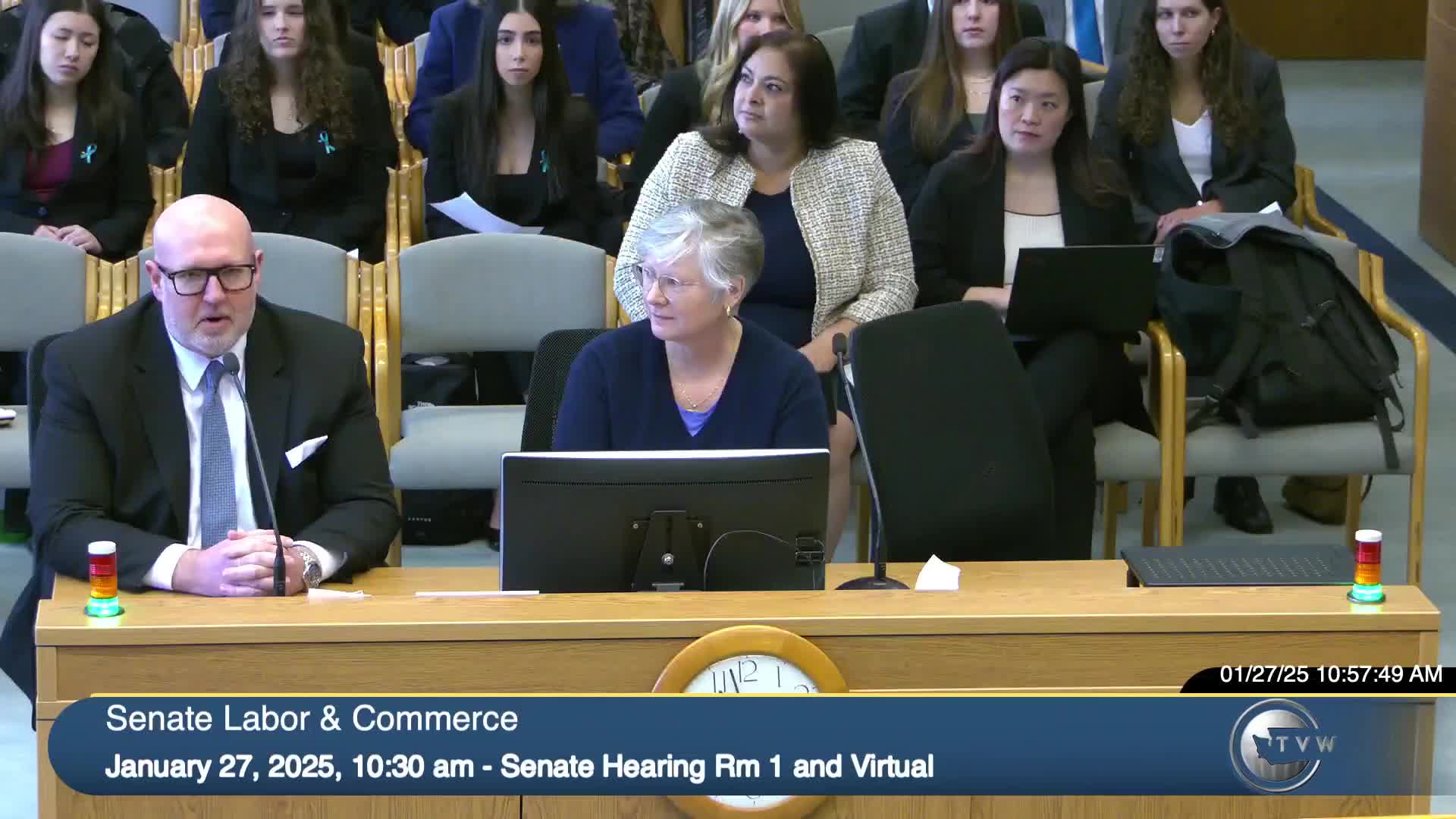Senate committee hears bill to extend collective bargaining to operational student workers
Get AI-powered insights, summaries, and transcripts
Subscribe
Summary
Senate Bill 5119 would extend collective bargaining rights to student employees at Washington's regional universities and The Evergreen State College who are not already covered, with sponsors and student speakers urging the committee to address pay, scheduling and grievance protections; a fiscal note lists costs to several institutions.
Senate Labor & Commerce Committee members heard testimony on Senate Bill 5119, a proposal to extend collective bargaining rights to student employees at Washington's regional universities and The Evergreen State College who are not currently covered by state collective bargaining laws.
Senator Tijuana Nobles, prime sponsor, said student workers provide essential services on campuses and face inconsistent protections. "Student workers are the backbone of our college campuses, keeping vital services running while striving to achieve their educational goals," Nobles said. She told the committee the bill would create a "clear and fair framework" to allow student workers to negotiate wages, workplace protections and certain tuition remission matters.
Staff described the bill's scope and exclusions. Jarrett Sack, committee staff, said the bill would cover student employees enrolled in academic programs at the regional universities and Evergreen who are not currently covered; executive employees, managers, confidential employees and others are excluded. Sack said the scope of bargaining would not include termination for academic reasons, the academic calendar or admissions counts, but would allow bargaining over tuition remission and fee waivers. He also noted a fiscal note is available and the bill contains an emergency clause and takes effect immediately.
Multiple student and union witnesses testified in favor. Emily Myers of the UAW testified the bill would extend rights already granted to teaching and research assistants and avoid protracted unit-determination proceedings by establishing appropriate bargaining units. Student speakers described workplace problems for operational employees: Leo Curtis, who operates a campus food pantry, said short paychecks and delayed responses left him waiting months for resolution, while his academic-position roommate accessed union grievance procedures quickly. Nathan Tippman, legislative liaison for students at The Evergreen State College, and Alec Acosta Vega, a student at Central Washington University, said operational workers face irregular scheduling and safety issues that bargaining could address. David Burry of Eastern Washington University described approximately 950 student employees at his campus and said administration is considering how experiential paid internships would intersect with bargaining rights.
Committee members asked about the fiscal note and scope. Sack summarized institution-specific estimates in the fiscal note, citing multi-hundred-thousand-dollar costs for several universities (staff read figures for Eastern, Central Washington, Evergreen and Western). Senator King and others noted the bill will be reviewed by the Ways & Means Committee because of fiscal impacts. Questions also clarified the bill is limited to undergraduate operational student employees and does not cover graduate student employees.
With testimony concluded the committee closed the record on SB 5119 and moved to other bills. No formal vote on SB 5119 was recorded in the transcript.
The committee will consider the bill's fiscal implications in Ways & Means and may return with amendments addressing funding and unit definitions.
